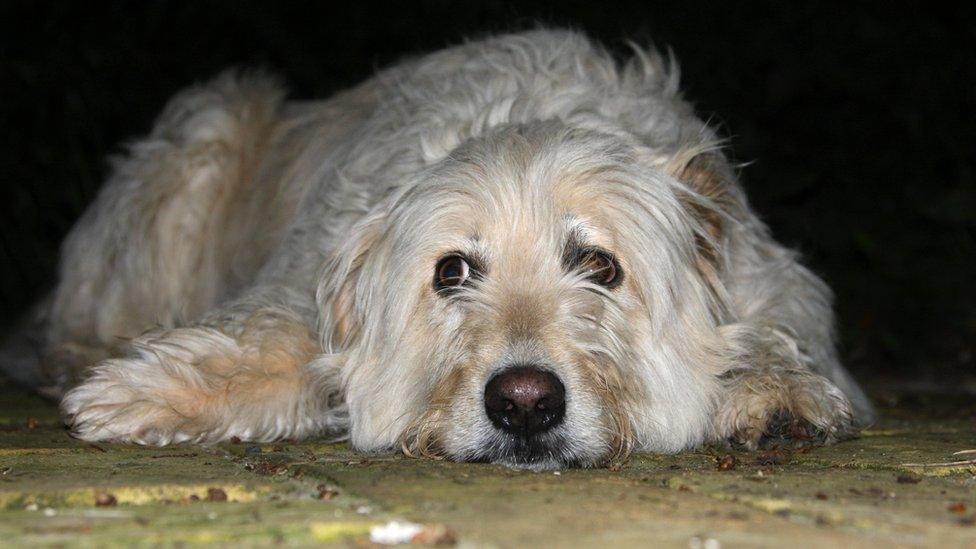Horse died after being scared by fireworks - owner
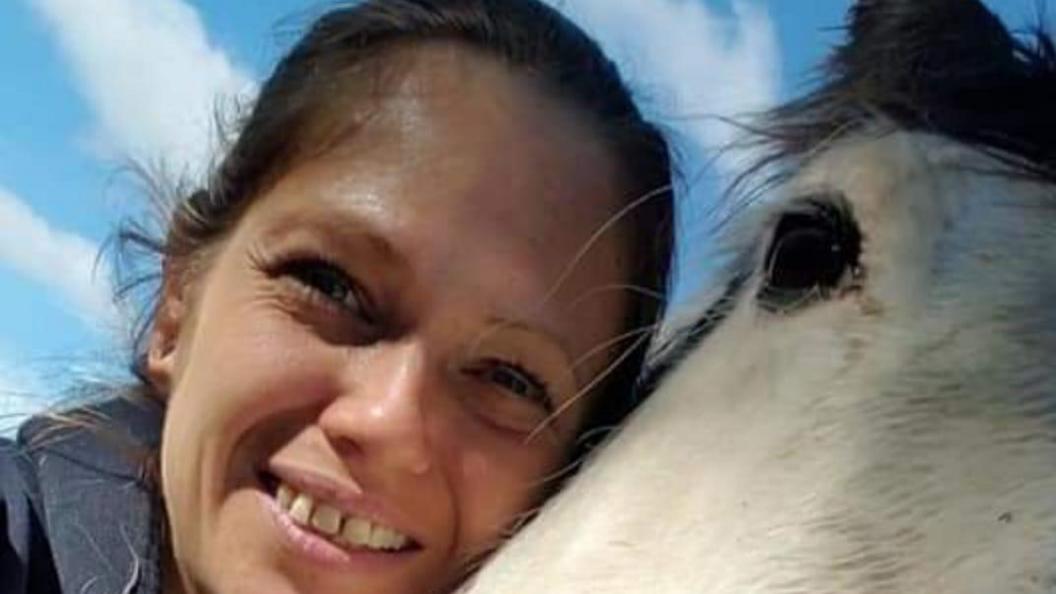
Samantha Parsons said the fireworks made the inside of her house "shake"
- Published
A woman said her horse had to be put down after it was spooked by "over-the-top" fireworks let off during the New Year's Eve celebrations.
Samantha Parsons, from Eaton Bray in Bedfordshire, said horse Murphy was so distressed he could not stand up.
She said fireworks should not be set off near livestock and animals needed to be better protected.
The government said it was "important" that fireworks were "used responsibly".
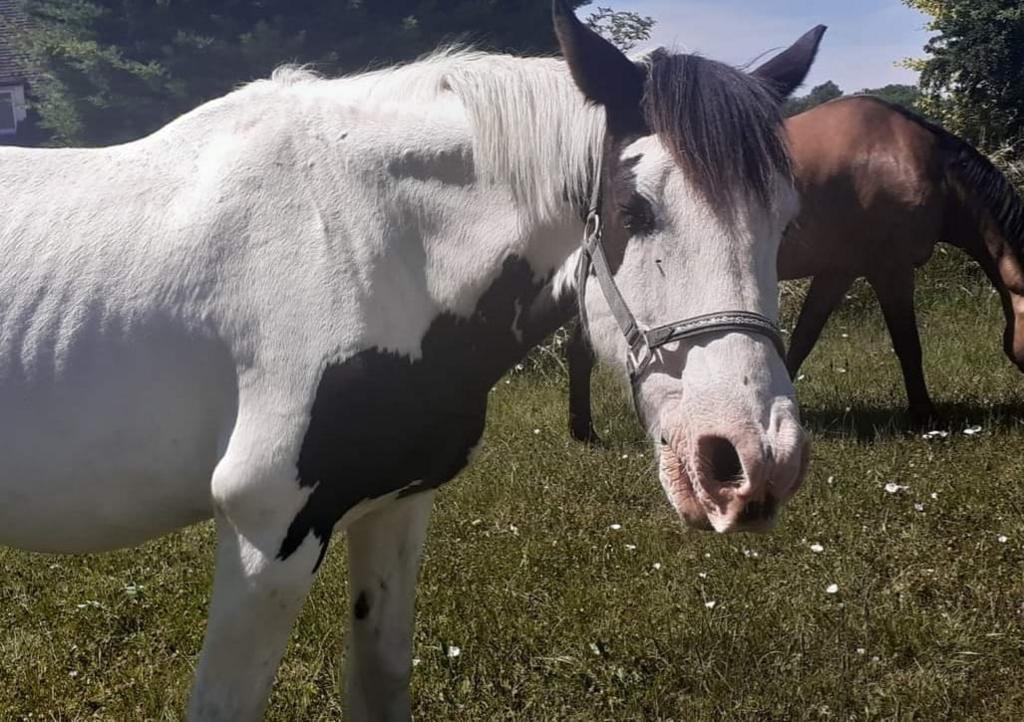
Murphy lived outside in a field in Eaton Bray, Bedfordshire
'Panic in his eyes'
Ms Parsons said on the morning of 1 January she found her 25-year-old horse in "complete distress".
"We spent four hours trying to get him up but it was decided, with the care of the vet, he wasn't going to pull through, so we put him to sleep," she said.
"To see him with such panic in his eyes was just horrendous.
"If those fireworks hadn't been set off so close, he would still be here today.
"We have cattle and sheep next to us, so we should be protected under that law that is already in place.
"You're not supposed to let fireworks off in situ of livestock, so this was completely avoidable."
She said after midnight a large number of private fireworks around her home were set off and "the sheer volume of them was absolutely unreal".
"They were crazy, over-the-top," she said.
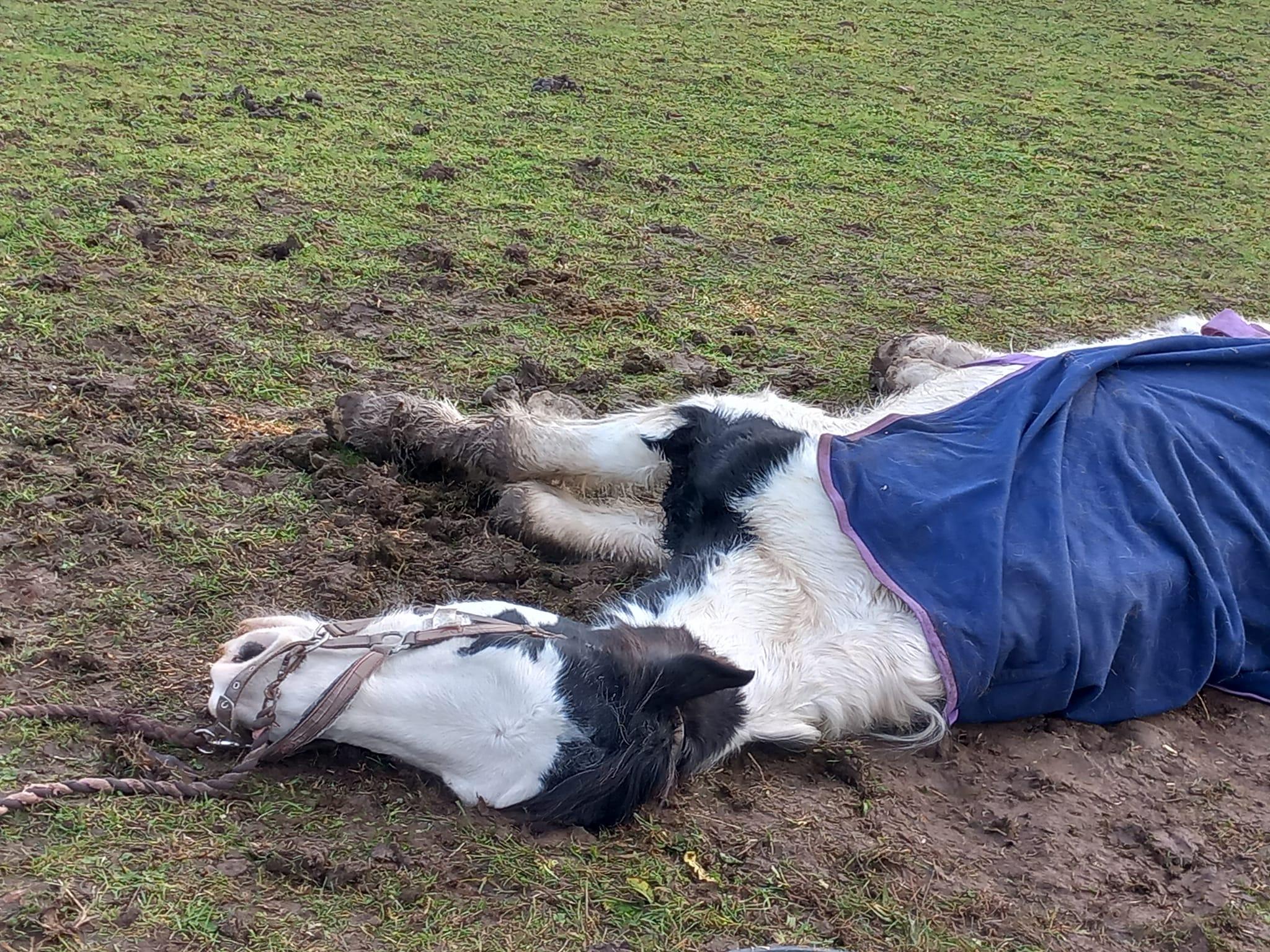
Murphy, pictured before he died, was unable to stand up after being scared by fireworks, said Ms Parsons
Fireworks regulations, external state "it is an offence to cause any unnecessary suffering to any captive or domestic animal", with punishment including a fine of up to £20,000 or a six month prison term.
The rules should be enforced by councils, animal health officers and the police.
Equine welfare specialist Dr Mark Kennedy, from the RSPCA, said: "Sadly, the loud bangs, pops and sizzles of fireworks, coupled with the bright flashes of light, cause so much fear and distress for many pets, horses, farm animals and wildlife."
He said horses and other farm animals were easily startled and could run in "blind panic".
"Owners can find their horses or other animals in a collapsed state, injured or entangled in fencing and needing urgent medical attention," he said.
"We are aware of recent horse fatalities potentially due to fireworks on New Year's Eve.
"The period over which animals are exposed to this appears to be growing - fireworks can be let off for many weeks around early November right through to the New Year and beyond.
"This is why we encourage a positive change that would limit not only the sale but crucially the use of fireworks to limited celebratory dates, to reduce the damage they do."
'Badly wrong'
Andrew Selous, Conservative MP for South West Bedfordshire, said: "I don't think any fireworks display is ever worth causing the death of someone else's much-loved family pet.
"I will go to the government and raise the number of deaths with them and say I don't think the current law is working properly and being enforced.
"We need to have a think again, as a country, about how we do better to protect beautiful horses like Murphy.
"I don't want to ban fireworks, I don't want to be a killjoy. If they're causing death and injury to animals then something is going very badly wrong."
A spokesperson for the government said: "We recognise that people want to enjoy fireworks at certain times of the year, however it is important that they are used responsibly and considerately to protect both people and animals.
"This is why there are strict regulations in place to control the sale and use of fireworks, including laws to protect animals from harm."
A spokeswoman for Central Bedfordshire Council said under the Animal Welfare Act it would be able to investigate cases "where there have been fireworks set off near farmed livestock".
Anyone would need to provide sufficient evidence and a statement from the vets who attended, she said.
Find BBC News: East of England on Facebook, external, Instagram, external and Twitter, external. If you have a story idea for us, get in touch via eastofenglandnews@bbc.co.uk, external
You might also be interested in
- Published5 January 2023
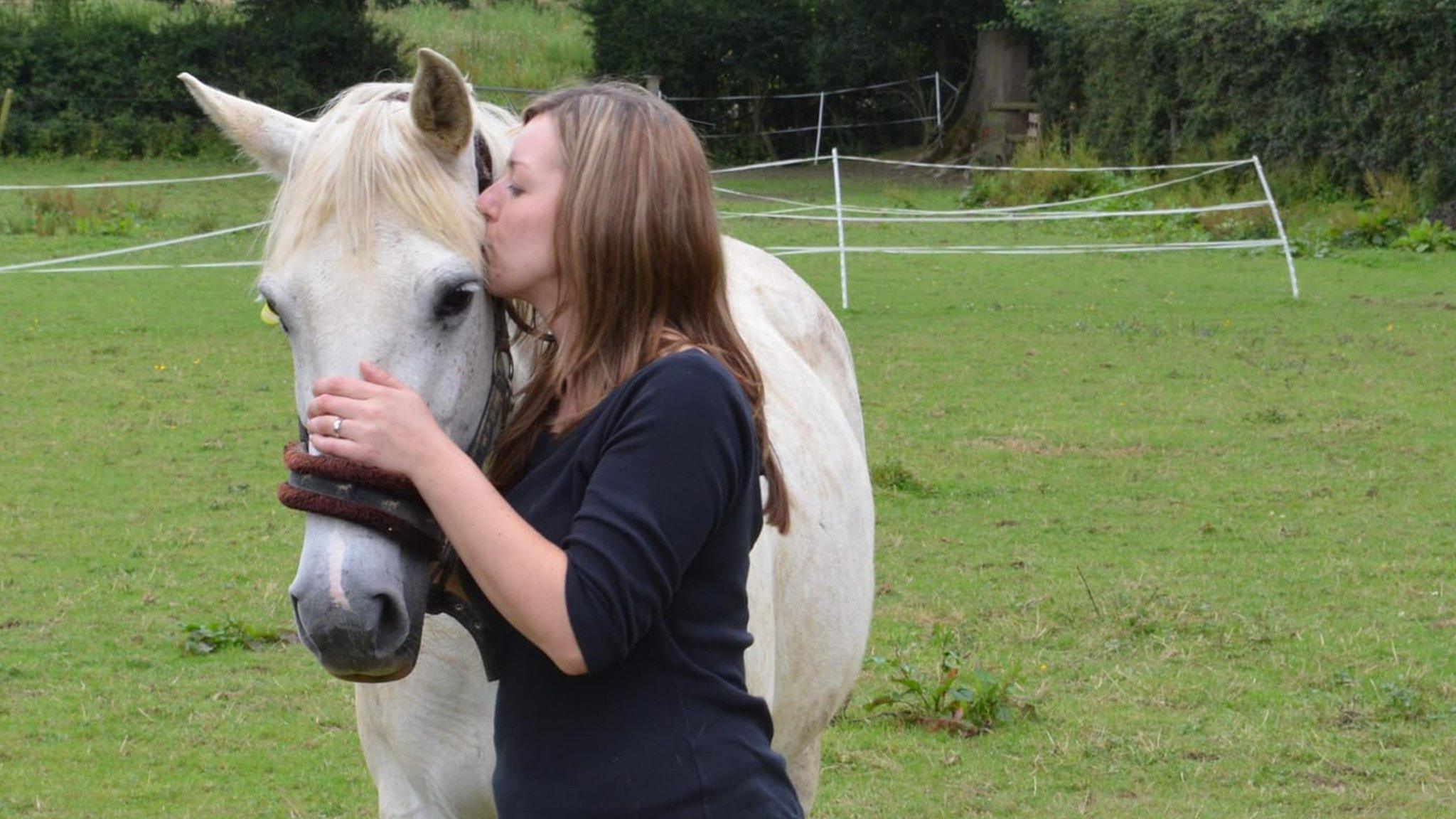
- Published12 November 2020
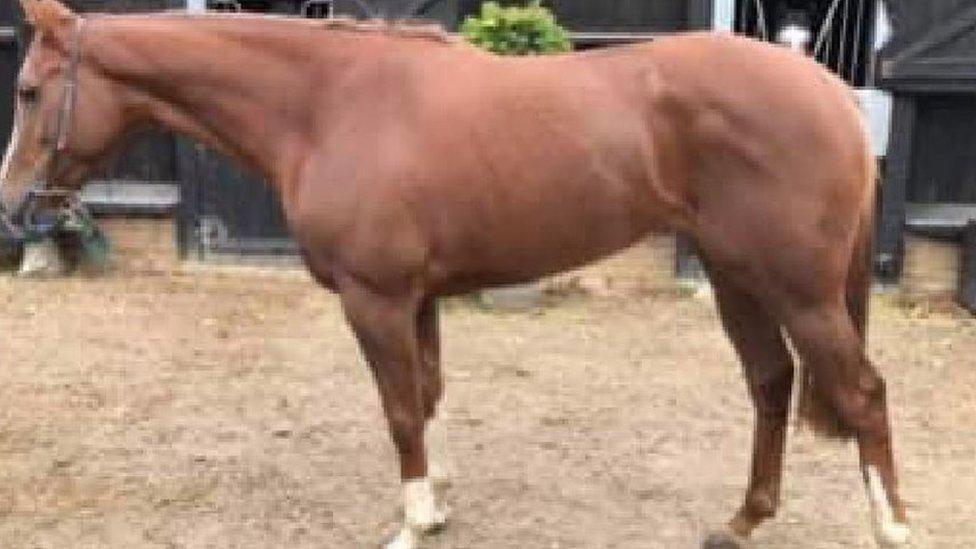
- Published15 November 2022
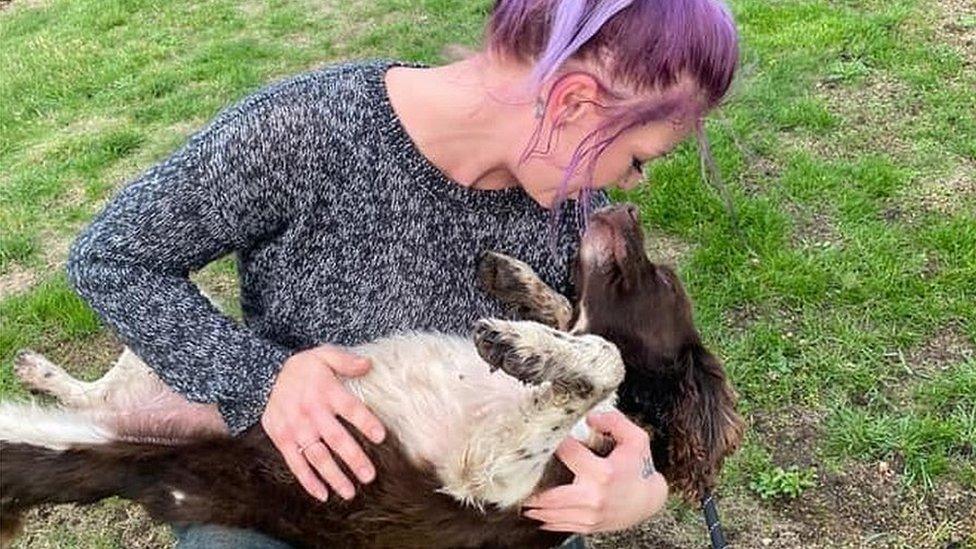
- Published30 December 2021
